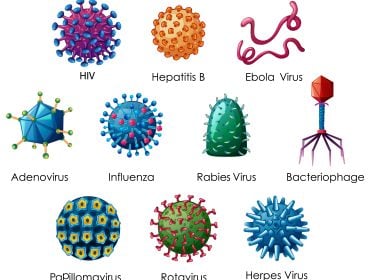Viral STDs Uncovered: A Comprehensive Guide to Herpes, HIV, HPV, and Hepatitis
In a world where sexual health is often neglected or misunderstood, it’s paramount to understand the risks associated with sexually transmitted diseases (STDs), especially those of a viral nature. Viral STDs are caused by viruses and are typically lifelong conditions, unlike bacterial STDs, which can be cured with antibiotics. This comprehensive guide delves into the four most common viral STDs – Herpes, Human papillomavirus (HPV), Human Immunodeficiency Virus (HIV), and Hepatitis C.
What is a Viral STD?
A viral sexually transmitted disease (STD), also known as a sexually transmitted infection (STI), is an infection that is spread through sexual contact and is caused by a virus. Unlike bacterial STDs, which can be cured with antibiotics, viral STDs are typically lifelong because viruses live inside the body’s cells, protecting them from medicines. Some of the most common viral STDs include HIV, Herpes Simplex Virus (HSV), Human Papillomavirus (HPV), and Hepatitis B and C. These diseases can lead to significant health issues if not properly managed, including cancer, liver disease, and Acquired Immune Deficiency Syndrome (AIDS).
Understanding whether an STD is viral or bacterial is crucial for several reasons:
-
- Treatment and Management: Bacterial STDs, like chlamydia, gonorrhea, and syphilis, can generally be remedied with antibiotics. On the other hand, viral STDs, such as HIV, HPV, herpes, and hepatitis, are generally not curable. They can be managed with medication to reduce symptoms, prevent or slow the progression of the disease, and decrease the risk of transmission, but the virus remains in the body.
- Transmission: Both types of STDs can be transmitted through sexual contact, but viral STDs can also be spread in other ways. For example, HIV and hepatitis can be transmitted through sharing needles or from mother to child during childbirth or breastfeeding. Herpes and HPV can be circulated via skin-to-skin contact, even without visible symptoms.
- Long-Term Health Effects: Viral STDs can lead to severe long-term health problems. HIV can progress to AIDS, a condition that severely weakens the immune system. Certain types of HPV can cause cancer, including cervical, anal, and oropharyngeal (throat) cancers. Hepatitis can lead to severe liver damage and cancer.
- Prevention: Knowing whether an STD is viral or bacterial can also impact prevention strategies. Vaccines are available for viral STDs, including HPV and hepatitis A and B.
Understanding the nature of an STD affects its treatment, how it can be prevented, and the potential long-term health impacts is essential to know whether an STD is viral.
The Intricacies of Viral STDs
Diseases under the umbrella term ‘viral STD’ are infections transmitted through sexual contact caused by viruses instead of bacteria. They’re particularly problematic because they are often incurable, persisting throughout the lifetime of the infected person. Let’s delve deeper into the specifics of these conditions.
Herpes: A Common Yet Misunderstood Viral STI
Herpes is an STD caused by two types of viruses: Herpes Simplex Virus type 1 and type 2. They are referred to as HSV-1 and HSV-2, respectively. These viruses can cause sores or lesions in various parts of the body, most commonly in or around the mouth and genitals. Transmission can occur through infected bodily fluids such as saliva, semen, vaginal secretions, or fluid from these sores.
It’s important to note that herpes can be spread even with no visible signs or symptoms. This phenomenon, known as viral shedding, coupled with the fact that areas not covered by a condom can still be affected, makes herpes a challenging disease to contain and manage.
HPV: The Unpredictable Viral STI
HPV stands out as a particularly unpredictable viral STI. It can manifest in numerous ways in different people, ranging from no symptoms at all to genital warts to various types of cancers. Alarmingly, over 14 million new cases are reported annually in the United States.
While some strains of HPV can disappear on their own after a couple of years, others can lead to serious health issues like cervical cancer, penile cancer, oropharyngeal cancer, and more. Fortunately, vaccines can help prevent certain high-risk strains of HPV, offering a ray of hope in the fight against this viral STI.
HIV: The Viral STD That Grabs Headlines
HIV is perhaps the most well-known viral STD. It’s a severe condition that, without treatment, can progress to AIDS (Acquired Immune Deficiency Syndrome). Once AIDS develops, the individual loses their ability to fight off illnesses, diseases, and infections. Consequently, early detection is vital to ensure a longer, healthier life for those diagnosed with HIV. Thanks to advancements in medical science, numerous lifelong treatment options are now available for people living with HIV.
Hepatitis: A Stubborn Viral STD
Hepatitis C (HCV) and Hepatitis B (HBV) are two types of hepatitis that affect the liver and are transmitted sexually. Unlike Hepatitis A and B, there’s no vaccine to prevent HCV. Both HCV and HBV have two stages – the acute stage, which can cause flu-like symptoms, jaundice, dark urine, and/or gray stool, and the chronic stage, which can lead to persistent infections, chronic liver disease, cirrhosis, or even liver cancer.
Understanding these “4 H’s” of viral STDs is crucial for maintaining sexual health. Knowledge is power, and spreading awareness about these diseases is vital in preventing their spread.
Prioritizing your sexual health is essential. Regular testing and early detection of any STD can remarkably improve the effectiveness of treatment and potentially save lives. Remember, when it comes to your sexual health, ignorance is far from bliss.
Viral STIs
Knowing the 4 H’s can help you make better decisions regarding safer sex. Spread knowledge about sexually transmitted diseases to help stop their spread.
Medically Reviewed by J. Frank Martin JR., MD on September 19, 2023
Secure and Confidential
STD testing services
The fastest results possbile - available in 1 to 2 days

Tagged
Categorized As
Author: Nick Corlis
Nick Corlis is a writer, marketer, and designer. He graduated from Texas State University in San Marcos, Texas, with a degree in Digital Communications. Nick is proud to be able to help eliminate the stigma of STD testing through his writing and is always trying to advocate the importance of your sexual health. Before STDcheck, his favorite way to develop his writing skills was by accepting various writing jobs in college and maintaining multiple blogs. Nick wears many hats here at STDcheck, but specifically enjoys writing accurate, well-researched content that is not only informative and relatable but sometimes also contains memes. When not writing, Nick likes to race cars and go-karts, eat Japanese food, and play games on his computer.




